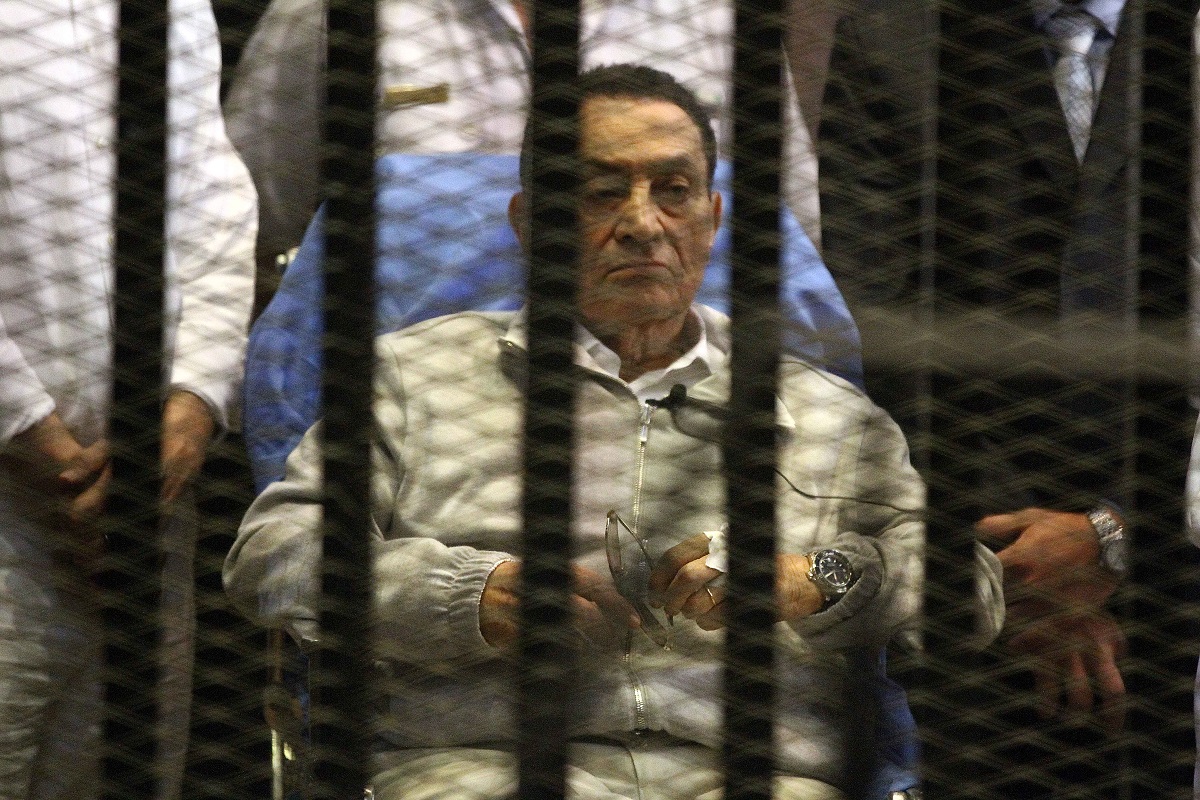Peace, stability in Middle East vital for entire world: EAM Jaishankar
Jaishankar is in South Africa to participate in the G20 Foreign Ministers’ Meeting from February 20-21.
The former president succeeded Anwar Sadat, who was assassinated on October 6, 1981 while attending a military parade to commemorate the 1973 war.

former President Hosni Mubarak (Photo: IANS)
Hosni Mubarak, Egypt’s fourth and longest-serving president has passed away at the age of 91 after undergoing treatment in an intensive care unit following surgery, according to the report on Tuesday.
Mubarak who had ruled Egypt for 30 years before he was overthrown in 2011 mass protests has passed away in Cairo’s Galaa military hospital.
Advertisement
Egyptian presidency has mourned the death of Mubarak for his services to the homeland as “a hero of October 1973 war” and offered condolences to his family.
Advertisement
According to the presidency statement, “Mubarak was commander of the Air Forces during the war that restored dignity and pride to the Arab nation,”
The presidency has announced nation-wide three days of mourning.
“Supporters of Mubarak took to his Facebook page, mourning the demise of Mubarak and offered condolences to his two sons.
Taking to Twitter, his older son Alaa expressed his grief along with his late father image, saying that he had died on Tuesday morning.
The former president succeeded Anwar Sadat, who was assassinated on October 6, 1981 while attending a military parade to commemorate the 1973 war.
Born in 1928 in Munofiya province in the Nile River Delta, Mubarak graduated from the Air Force Academy and worked as its director for three years.
He was appointed by then President Anwar Sadat as Air Force Commander in 1972. Later, he was awarded by the late president for his accomplishments during the Arab-Israeli war.
He was married to Suzanne Mubarak, a half-British graduate of the American University in Cairo, with two sons, Alaa and Gamal.
In 1975, Sadat appointed Mubarak as his vice president.
When Mubarak assumed power, he focused on getting Egypt from its isolation with some Arab and Muslim countries in response to Sadat’s signing of a peace treaty with Israel in 1979.
His foreign policies have long dominated the Middle East. He built successful ties with Iraq and provided military assistance to Baghdad in its war with Iran.
Egypt’s role in settling the Palestinian cause was very clear during Mubarak’s time. In 2008, Mubarak managed to draw a truce between Islamic Hamas movement and Israel.
He sent troops as part of the US-led coalition in the 1990-1991 Gulf war.
In June 1995, Mubarak survived an assassination attempt on his motorcade while he was attending a summit in Ethiopia.
Mubarak won three elections, but for his fourth contest in 2005, he changed the system to allow rival candidates after pressure of some western countries over concerns of applying democracy.
The military announced his resignation on February 11, 2011.
By late May 2011, judicial officials announced that Mubarak along with his two sons would stand trial over the deaths of anti-government protesters.
In 2012, he was found guilty of complicity in the murder of some of the demonstrators who took part in the wave of protests. He was sentenced along with his interior minister to life sentence.
In 2014, Mubarak was found guilty of embezzlement and sentenced to three years in prison.
He was convicted in 2015 along with his two sons of diverting public funds and using the money to upgrade family properties. They were sentenced to three years in jail.
In March 2017, Egypt’s top court upheld Mubarak acquittal and he went free, for the first time in six years.
(With inputs from agency)
Advertisement